News and resources
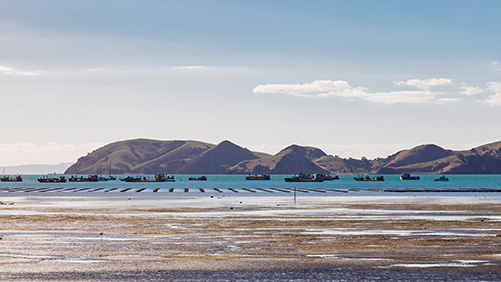
Central government
Ministry for Primary Industries
The Ministry for Primary Industries (MPI) sets out how the Government will accelerate the aquaculture sector in the New Zealand Aquaculture Development Plan.
MPI works to deliver the Aquaculture Settlement which recognises Māori interests in marine farming and ensures Māori can benefit from the growth of New Zealand’s aquaculture industry, including through prospective settlement for anticipated growth. This settlement was established under the Māori Commercial Aquaculture Claims Settlement Act 2004 (the Settlement Act). The Settlement Act provides pathways for iwi in the region to pursue their aquaculture aspirations. To achieve this settlement, MPI works collaboratively with Iwi Aquaculture Organisations (IAO) and Te Ohu Kaimoana.
MPI provides a range of resources related to aquaculture, including guidance for setting up a marine farm, guidance for sustainable aquaculture and guidance for protecting aquaculture from biosecurity risks.
Recent regulatory changes to extend marine farm consents by 20 years and introduce the Fast-track Approvals Act 2024 (FTA) will provide certainty and a streamlined consenting pathway for nationally and regionally significant projects. MPI are progressing changes to the National Environmental Standard for Marine Aquaculture to improve consenting and enable innovation on farm.

The Government is considering other improvements to national direction, including more enabling provisions in the New Zealand Coastal Policy Statement alongside wider resource management reforms.
Addressing regulatory barriers is essential, but growth will not happen without significant investment. Invest New Zealand has recently published an Investment Prospectus that outlines the opportunities for investment into the aquaculture sector.
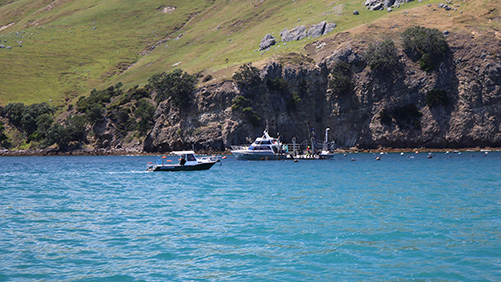
Local government
The Waikato Regional Policy Statement and Waikato Regional Coastal Plan set out objectives, policies and rules relating to aquaculture in the region. Waikato Regional Council is currently reviewing its aquaculture provisions as part of the Proposed Waikato Regional Coastal Plan process.
Thames Coromandel District Council recognises the key role that Coromandel plays in supporting the region’s growth goal. Their document Investing in Coromandel Aquaculture and Marine Infrastructure sets out the opportunities aquaculture in the Coromandel presents for the district, investors, and New Zealand. These include new infrastructure at Te Ariki Tahi Sugarloaf Wharf and the Kōpū Marine Servicing and Business Precinct.
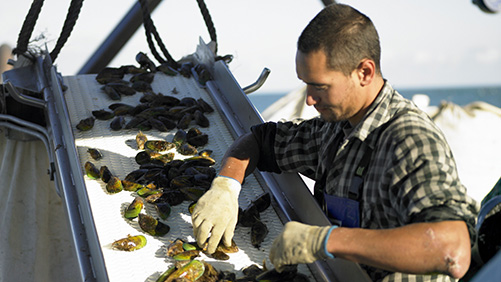
Industry
The Coromandel Marine Farmers’ Association represents the mussel and oyster farmers of the Hauraki Gulf and runs region specific environmental initiatives such as beach cleaning and mussel float recovery. They provide guidelines for recreational fishing around farms in the region.
The Aotearoa New Zealand Seaweed Association provides a united voice on matters which promote our vision of a high value, nature positive seaweed industry for Aotearoa New Zealand. You can also find a range of updates including on research programmes.
Aquaculture New Zealand
Aquaculture New Zealand (AQNZ) supports the sustainable growth of aquaculture in New Zealand. AQNZ facilitates a range of initiatives including the A+ Sustainable Management Framework, the A+ Biosecurity Standards, the New Zealand Greenshell Mussel Spat Strategy, a Workforce Action Plan and a Life Cycle Assessment of New Zealand Mussels and Oysters.
AQNZ’s work includes facilitation of the Ahumoana o Aotearoa Spat Research Collective which is a platform for a range of initiatives towards productive and resilient mussel spat. This includes a research programme to identify the environmental drivers of spat performance.
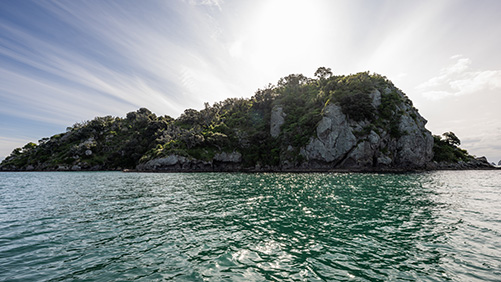
Iwi
Growing together – Whakatupu Ngātahi recognises the importance of partnering with iwi to ensure their values, practices and aspirations, commercially, culturally and as kaitiaki are provided for. The WRAG is mindful of the role of iwi as kaitiaki and their protected rights under the Marine and Coastal Area (Takutai Moana) Act and Treaty settlements. Through WRC, WRAG has extended invitations to each iwi and recognises the need for each member group to optimise engagement with hapū and iwi in the region.
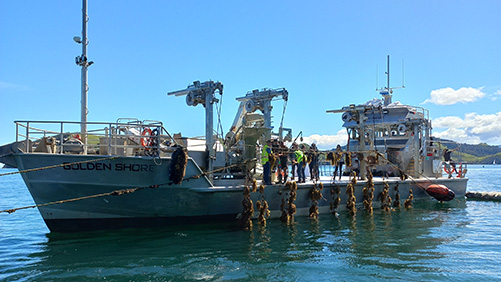
Conservation and education
A recent research report by the Nature Conservancy demonstrates the ecosystem benefits that appropriately located aquaculture can provide.
The Revitalising the Gulf marine work programme lead by the Department of Conservation sets out a package of marine conservation and fisheries management actions to restore a healthy Hauraki Gulf/Tīkapa Moana.
The industry provides a range of support for and involvement in the Revive our Gulf programme to restore the mussel reefs of the Hauraki Gulf.
The University of Waikato undertakes a range of research programmes towards innovations in aquaculture including from their Coastal Marine Field Station in Tauranga.
The Seafood Sector Adaptation Strategy is coordinated by the Aotearoa Circle and aims to improve the sector’s resilience to climate change. The work covers wild fisheries as well as aquaculture, it includes focus on the mussel sector and the finfish farming sector.